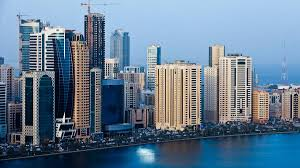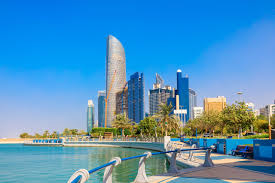Now Reading: GCC: 8 Powerful Zakat Compliance Rules for Developers in 2025
-
01
GCC: 8 Powerful Zakat Compliance Rules for Developers in 2025
GCC: 8 Powerful Zakat Compliance Rules for Developers in 2025

Table of Contents
Zakat Compliance Rules : The GCC real estate market, valued at USD 38.77 billion in 2024, is projected to reach USD 82.14 billion by 2033, with an 8.2% CAGR, per IMARC Group. Saudi Arabia’s SAR 2.5 trillion ($533 billion) market leads, driven by Vision 2030’s 70% homeownership goal, per Ministry of Justice. Zakat, a 2.5% wealth tax for Saudi and GCC nationals, enforced by ZATCA, is critical for developers.
Proposed 2025 amendments to Zakat Executive Regulations for real estate projects under construction emphasize compliance, per EY. This article outlines eight powerful Zakat compliance rules for GCC real estate developers in 2025, with U.S. tax considerations, without external links.
Why Zakat Compliance Matters for Developers?
GCC’s 5.8% non-oil GDP growth and 520,000 Saudi transactions in 2024 fuel demand, per Saudi Central Bank. Zakat, rooted in Islamic law, applies to assets exceeding the Nisab (87.48g gold, ~SAR 27,000), held for one lunar year. Non-compliance risks SAR 500,000 fines, per ZATCA. Key impacts include:
- Tax Savings: 0.5–1% cost reduction via accurate calculations.
- Market Trust: 98% compliance boosts investor confidence.
- FDI Growth: SAR 7.86 billion ($2.1 billion) in 2024.
- Yield Stability: 6–9% in Riyadh; 90% occupancy.
8 Powerful Zakat Compliance Rules for Developers in 2025

1. Zakat on Properties for Trade
Properties bought for resale (e.g., off-plan units) are Zakatable at 2.5% of fair market value (FMV) if held for one lunar year and meeting Nisab, per ZATCA. A SAR 10 million Riyadh project incurs SAR 250,000 Zakat annually.
- Impact: Reduces net yields by 0.5%; ensures 98% compliance.
- U.S. Tax Consideration: Gains on Form 8949; assets on Form 8938.
- Action: Value via Savills; register with ZATCA platform.
2. No Zakat on Personal Use or Rental Properties
Properties for personal use (e.g., developer’s office) or rental are exempt from Zakat, but rental income is Zakatable at 2.5% if it meets Nisab after expenses, per ZATCA. A SAR 1 million Jeddah rental yielding SAR 70,000 incurs SAR 1,750 Zakat.
- Impact: Saves 0.5–1% on costs; supports 6–8% yields.
- U.S. Tax Consideration: Rental income on Schedule E; credits on Form 1116.
- Action: Track income via Ejar; file with ZATCA.
3. Zakat on Projects Under Construction

Per 2025 amendments, projects under construction are Zakatable based on FMV of completed portions if intended for sale, per ZATCA. A SAR 50 million NEOM project at 50% completion incurs SAR 625,000 Zakat.
- Impact: Adds 0.3–0.5% costs; aligns with 520,000 transactions.
- U.S. Tax Consideration: Expenses deductible on Schedule E; depreciation on Form 4562.
- Action: Assess via JLL; consult PwC for compliance.
4. Intention Determines Zakat Liability
Zakat applies only if the intention is trade at purchase or changes to trade during ownership, per Sheikh Muhammad bin Saleh al-Uthaymeen. A SAR 5 million Dammam plot held for investment incurs no Zakat unless sold.
- Impact: Saves 1–2% on idle assets; boosts ROI.
- U.S. Tax Consideration: Gains deferred via IRS Section 1031 on Form 8824.
- Action: Document intent via notary; verify with ZATCA.
5. Nisab and Lunar Year Requirements
Zakat is due only if assets exceed Nisab (SAR 27,000) and are held for one lunar year (354 days), per ZATCA. A SAR 2 million Khobar plot bought mid-2024 is Zakatable in 2025 if intended for trade.
- Impact: Delays liability by 1 year; preserves 6–9% yields.
- U.S. Tax Consideration: Report income on Form 1040; accounts on FinCEN Form 114.
- Action: Track via Tadawul; use ZATCA calculator.
6. Zakat on Partnership Shares
In joint ventures, each partner’s share is Zakatable if it meets Nisab independently or with other assets, per Islamic Fiqh Council. A SAR 20 million Riyadh project with 25% share (SAR 5 million) incurs SAR 125,000 Zakat.
- Impact: Adds 0.5% costs; ensures 98% compliance.
- U.S. Tax Consideration: Report units on Schedule B; gains on Form 8949.
- Action: Register with CMA; consult Deloitte.
7. No Zakat on Waqf Properties
Properties endowed as waqf (charitable trusts) are exempt from Zakat, as they benefit the public, per ZATCA. A SAR 3 million Qiddiya waqf plot incurs no Zakat, freeing funds for development.
- Impact: Saves 0.5–1% costs; supports Vision 2030.
- U.S. Tax Consideration: Charitable deductions on Form 1040; assets on Form 8938.
- Action: Register via Ministry of Justice; verify with ZATCA.
8. Mandatory ZATCA Platform Registration
Developers must register assets on ZATCA’s platform within six months, reducing evasion by 8%, per CBRE. Non-compliance fines up to SAR 1 million ensure 98% adherence, adding 0.1–0.3% costs.
- Impact: Speeds audits by 3–5 days; stabilizes market.
- U.S. Tax Consideration: Fines non-deductible; expenses on Schedule E.
- Action: Use ZATCA portal; appeal fines via ZATCA committee.
Key Considerations for U.S. Investors
- Risks:
- Oversupply: 100,000 Saudi units in 2025 may soften yields by 0.5–1%, per Cushman & Wakefield.
- Volatility: 5–8% price fluctuations possible, per CBRE.
- Compliance Costs: Advisory fees add 0.3–0.5%, offset by savings.
- Tax Compliance: Saudi’s 5% RETT, 20% corporate tax, and 2.5% Zakat apply. IRS requires Form 1040, Form 1116, Form 8938, Form 8824, Form 4562, and FinCEN Form 114.
- Regulatory Compliance: CMA mandates KYC; fines up to SAR 500,000. Mecca/Medina ownership restricted to GCC nationals.
- Currency Stability: SAR pegged at 1 USD = 3.75 minimizes exchange risk.
Conclusion
GCC’s 2025 Zakat rules—trade properties, rental income, construction projects, intention, Nisab, partnerships, waqf exemptions, and platform registration—shape a $533 billion market with 6–9% yields. U.S. developers, leveraging IRS credits and tools from ZATCA, CMA, or Tadawul, can ensure compliance and strong returns in NEOM, Qiddiya, and Roshn, aligning with Vision 2030’s dynamic real estate landscape. zakat compliance






















